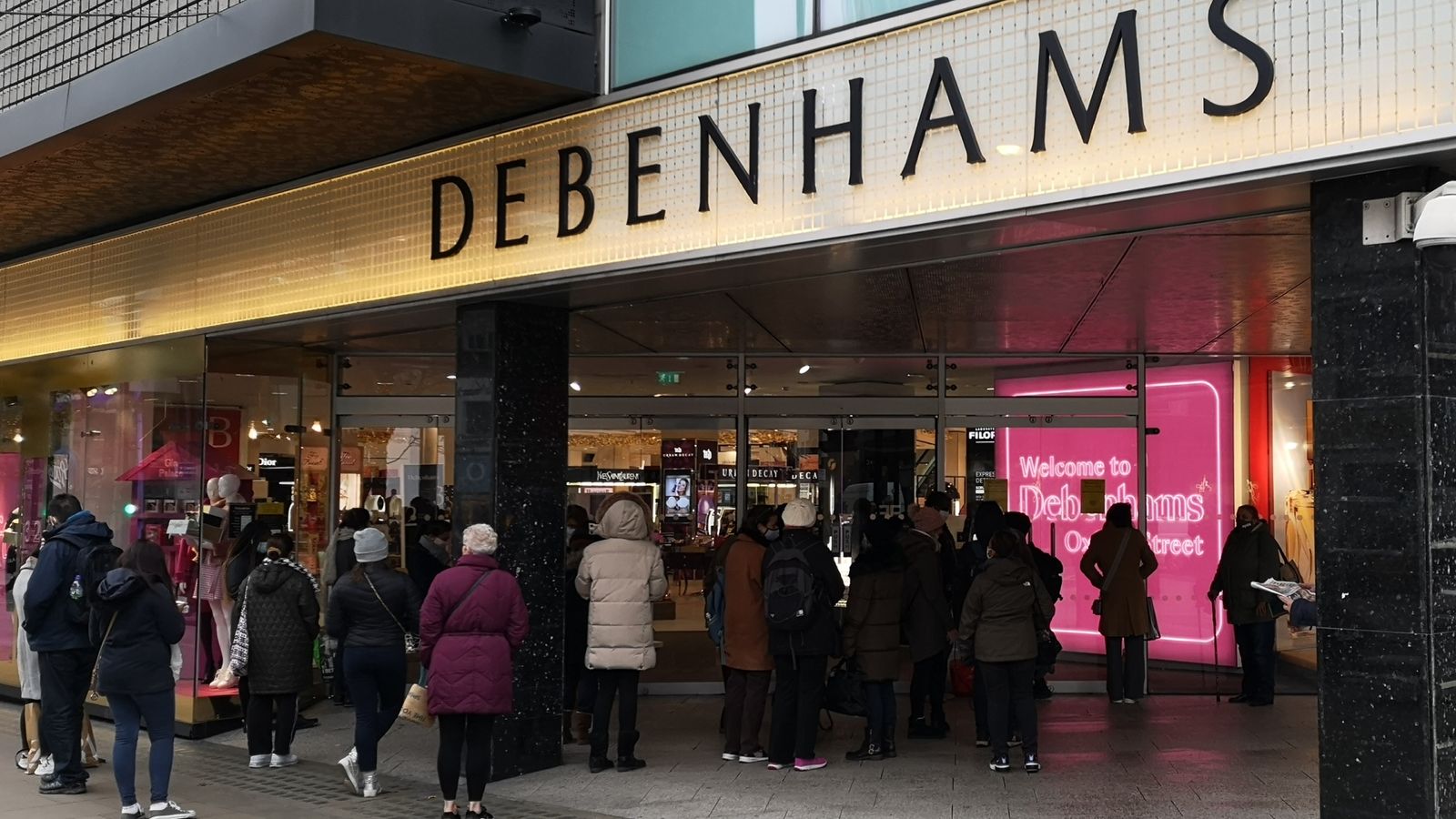Fashion retailer Boohoo has paid £55m to acquire the brand of collapsed rival Debenhams – with the intention of relaunching it online.
The cut-price deal for the brand name and intellectual property is expected to result in the closure of Debenhams’ remaining stores, according to a report in the Financial Times which was later confirmed by Sky News.
Such a scenario threatens more than 10,000 jobs at the chain as the vast majority are store-focused roles.
Boohoo said: “Debenhams is a long-standing and leading UK fashion and beauty retailer with high brand awareness, and an established online platform with approximately 300 million UK website visits per annum.
“This makes it a top 10 retail website in the UK by traffic.
“The transaction represents a fantastic opportunity to grow the group’s target addressable market and increase the share of wallet opportunity through a new capital light and low risk operating model that is complementary to the group’s highly successful direct-to-consumer multi-brand platform.”
Boohoo said the relaunch of the Debenhams online sales platform would include new categories including beauty, sport and homewares.
The announcement comes just days after Debenhams administrators FRP Advisory said they were still in talks with “a number of third parties regarding the sale of all or parts of the business”.
At the time, they announced that six stores would not reopen, including the flagship Oxford Street shop in central London.
The 242-year-old department store started a liquidation process last month after failing to secure a last-minute rescue sale.
Debenhams has been in administration since April last year but its problems pre-date the coronavirus crisis that has hurt so many high street retailers.
For much of its history, Debenhams was highly profitable and was an established anchor tenant on many UK high streets and shopping centres.
In the 1950s, Debenhams had 110 stores, making it the country’s largest department store group.
It listed on the London stock market for the third time in 2006, following a spell in private equity ownership that proved lucrative for CVC Capital Partners and TPG but which left its balance sheet saddled with what proved to be unsustainable debts.
And while customers increasingly moved their shopping online, Debenhams was opening new stores as recently as 2017 and its large physical presence came with high costs – rising rents, business rates and maintenance.

